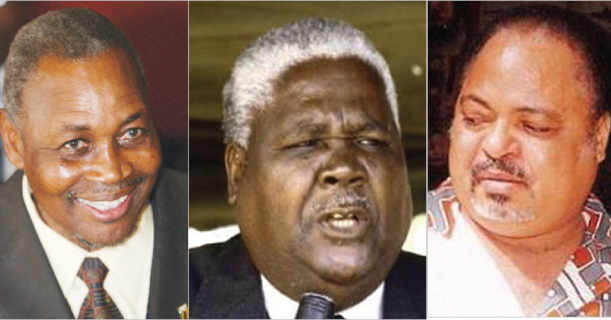
THE Southern African Political and Economic Series (Sapes) Trust director Ibbo Mandaza has called for the 1987 Unity Accord between Zanu PF and PF Zapu to be revisited saying it has failed to unite Zimbabweans.

NDUDUZO TSHUMA STAFF REPORTER
Speaking at a public meeting on independence organised by the Bulawayo Agenda and Sapes Trust at the Small City Hall in Bulawayo on Tuesday, Mandaza said they had deliberately held the meeting in Bulawayo because the Matabeleland region represented in many respects failure of the resolution of the national question.
He said there was need to re-establish independence with a foundation of the nation and an agreement to accept that the country had people from different backgrounds and willing to march together as a nation.
Mandaza said it was possible for a person hailing from a minority tribe to lead the country as had been illustrated by the popularity of the late veteran nationalist and Vice-President Joshua Mqabuko Nkomo who was the “father figure” of Zimbabwean politics.
“Go back to the drawing table and see where we went wrong. What happened to the idea of a nation? National institutions are a pillar to nation building. There was nothing wrong with the Lancaster House Constitution, but we put aside the Constitution to develop kingdoms and monarchs,” he said.
He said he was the Manpower, Planning and Development ministry permanent secretary after independence and his saddest moment was in 1982 “when most of my enumerators from this part of the country disappeared”.
“Two years into independence, we abandoned the nation. The Unity Accord has to be revisited,” he said.
- Chamisa under fire over US$120K donation
- Mavhunga puts DeMbare into Chibuku quarterfinals
- Pension funds bet on Cabora Bassa oilfields
- Councils defy govt fire tender directive
Keep Reading
“It did not rectify the breach of the national contract and nation building.
“The agreement was formed by radicals in PF Zapu and Zanu PF.”

Mandaza said people at the time were divided along party lines and there was need to rectify the divisions created by Gukurahundi.
He said the Unity Accord had no effect until the country revisited 1963 when Zanu PF was formed.
He also bemoaned the partisan nature of national institutions.
“Today most of our national institutions have been collapsing and have become partisan. Let us stop beating our chests. We are in shambles. Let’s go back to our national institutions and fix them,” Mandaza charged.
He said 50% of trained professionals in Zimbabwe were working outside the country.
Zanu PF politburo member and the party’s political head in Bulawayo province Sikhanyiso Ndlovu said the Unity Accord provided for a 50/50 partnership between Zanu PF and PF Zapu.
He said they had declined a clause in the Unity Accord indicating that PF Zapu had joined Zanu PF, but agreed that membership consists of a 50/50 ratio between the parties.
He said Nkomo told them to get in and never change colour, but be like chameleons accusing those who had been “swallowed” of lacking character.
Ndlovu conceded that Zimbabwe had had phases of difficulties, but said he did not expect an academic like Mandaza to generalise the Zimbabwean situation.
“If you say the country is in shambles then you are in shambles yourself. We agree that we have problems, but as an academic and researcher, you do not just generalise things. In research methodology, that is not allowed,” Ndlovu said.










